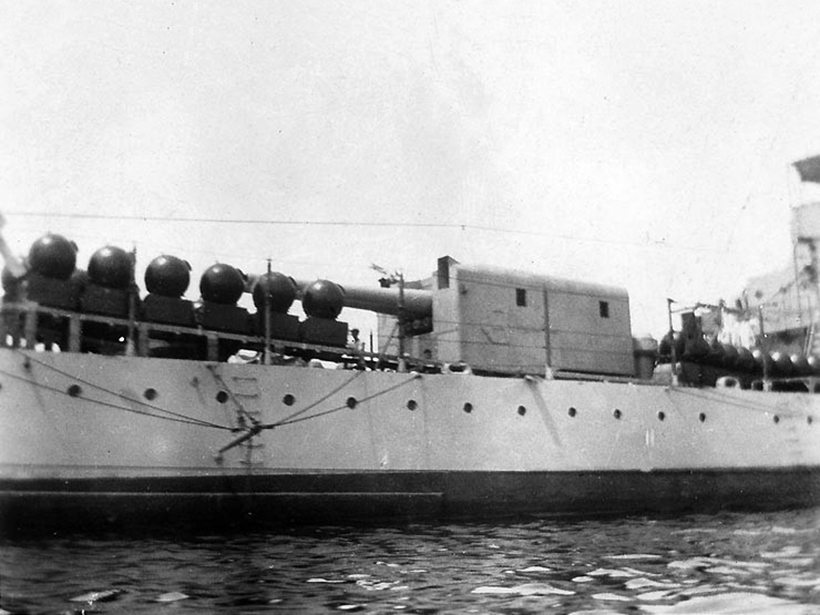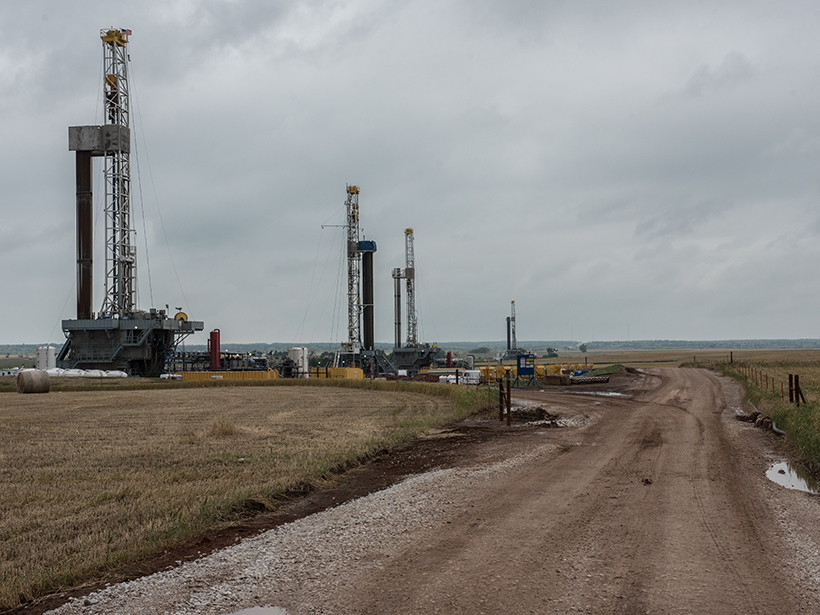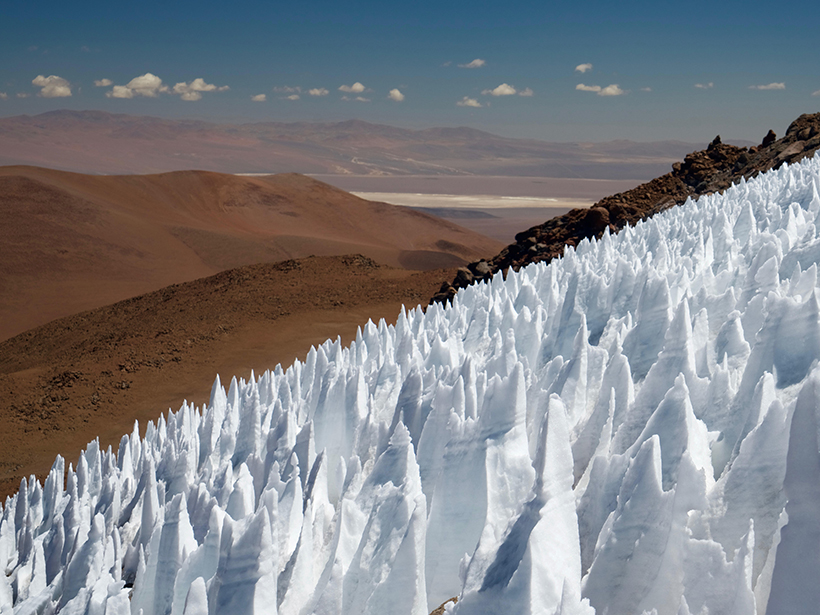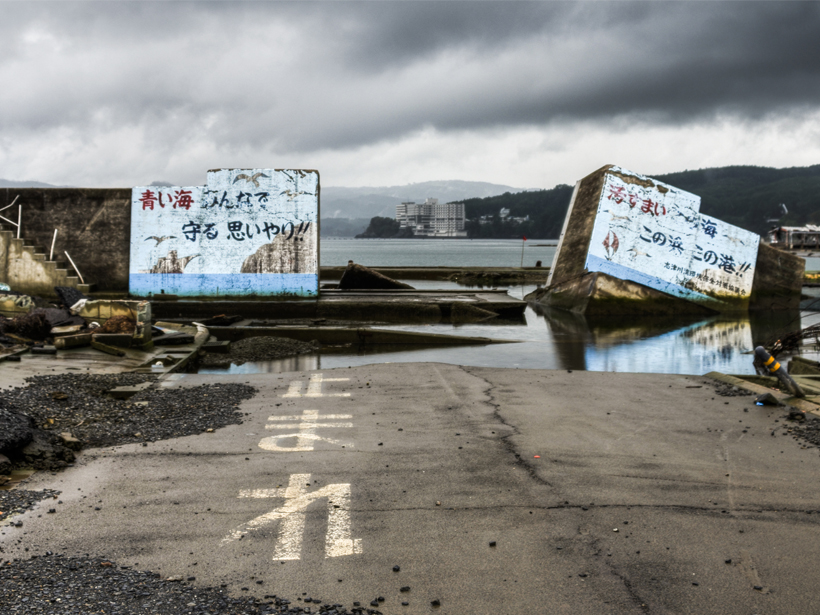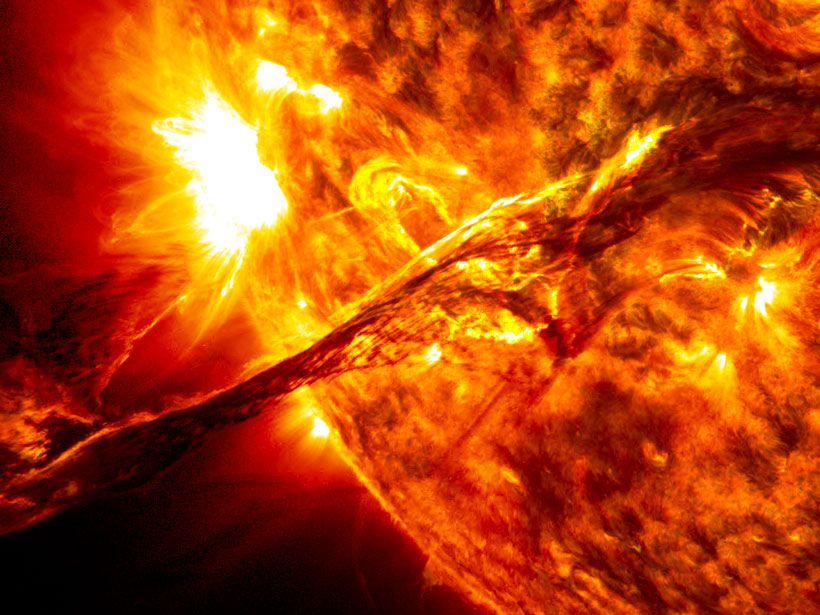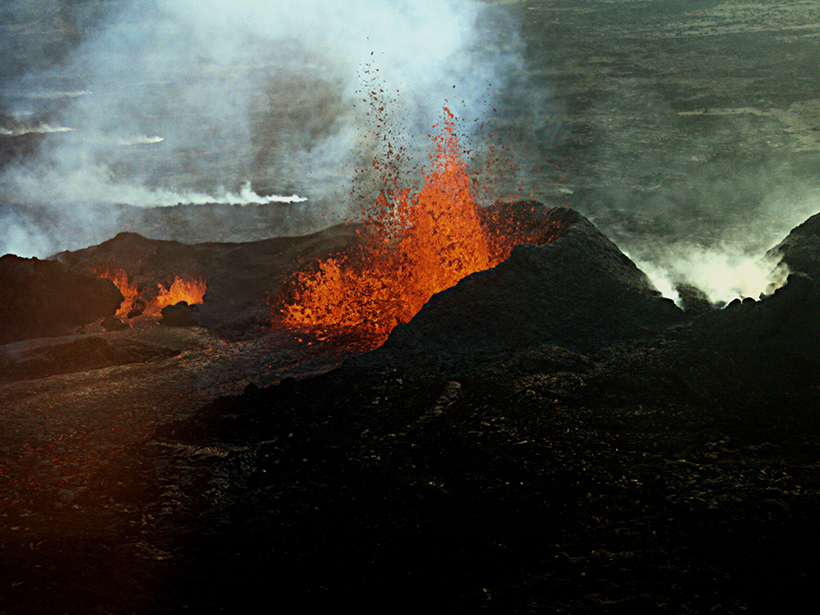In the latest episode of its Centennial series, AGU’s Third Pod from the Sun talks space weather and its influence on global policy with Delores Knipp.
News
Sinking Wastewater Triggers Deeper, Stronger Earthquakes
The effects of pumping wastewater from oil and gas extractions may last a decade or more after the injections stop.
Smokey Bear, Fake Volcanoes, and Other Things We’re Reading
What Earth and space science stories are we recommending this week?
Microbes Spotted on Blades of Ice High in the Andes
Researchers discover microbial life on ice spires known as penitentes on the arid, sunlight-blasted upper reaches of Llullaillaco, one of the best earthly analogues for Mars.
Lawsuit Challenges Trump Administration’s Emissions Rollbacks
The suit argues that the administration is failing to curb carbon dioxide emissions as required under the Clean Air Act.
Earthquakes Shake Up Groundwater Systems
Increased permeability temporarily boosts water flow.
Moon Sheds Light on Early Solar Spin
Lunar samples reveal that the Sun spun relatively slowly in its first billion years and blasted the Earth and Moon with coronal mass ejections.
Crystal Clocks Serve as Stopwatch for Magma Storage and Travel Times
Magma stored for 1,000 years in an Icelandic volcano journeyed to the surface in just 4 days.
Girl Scouts Emphasize STEM Education
With women still underrepresented in STEM fields, experts hope that new Girl Scout badges and other efforts will propel girls to study and enter science and related areas.
Murders of Environmentalists Have Doubled in 15 Years
Indigenous people defending their lands are particularly at risk, and watchdog groups warn that criminalization of environmental activism is also on the rise.

